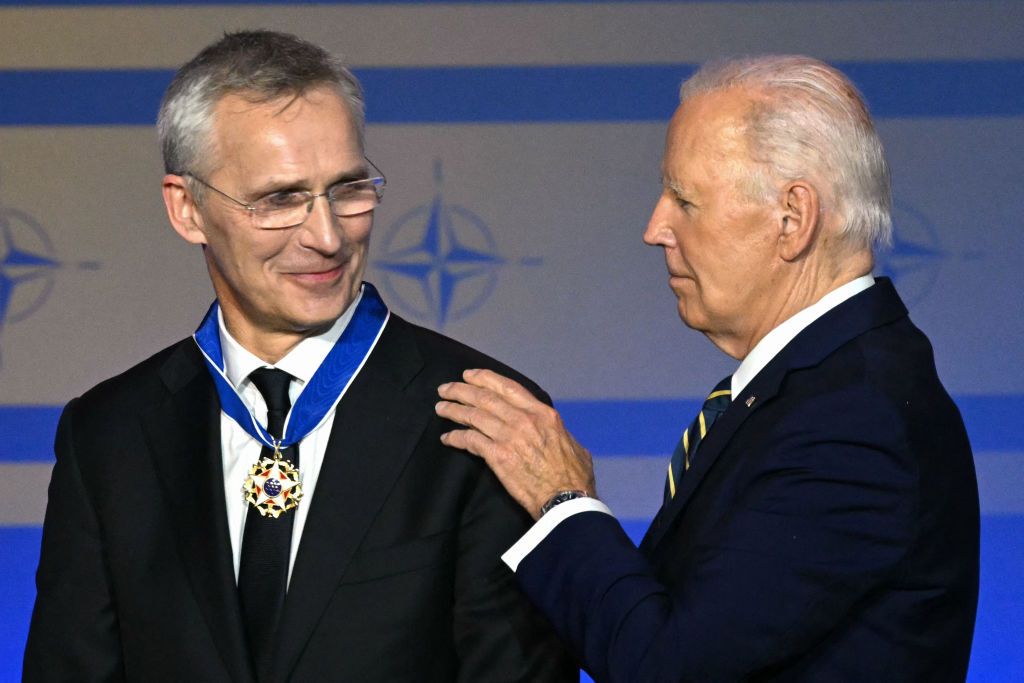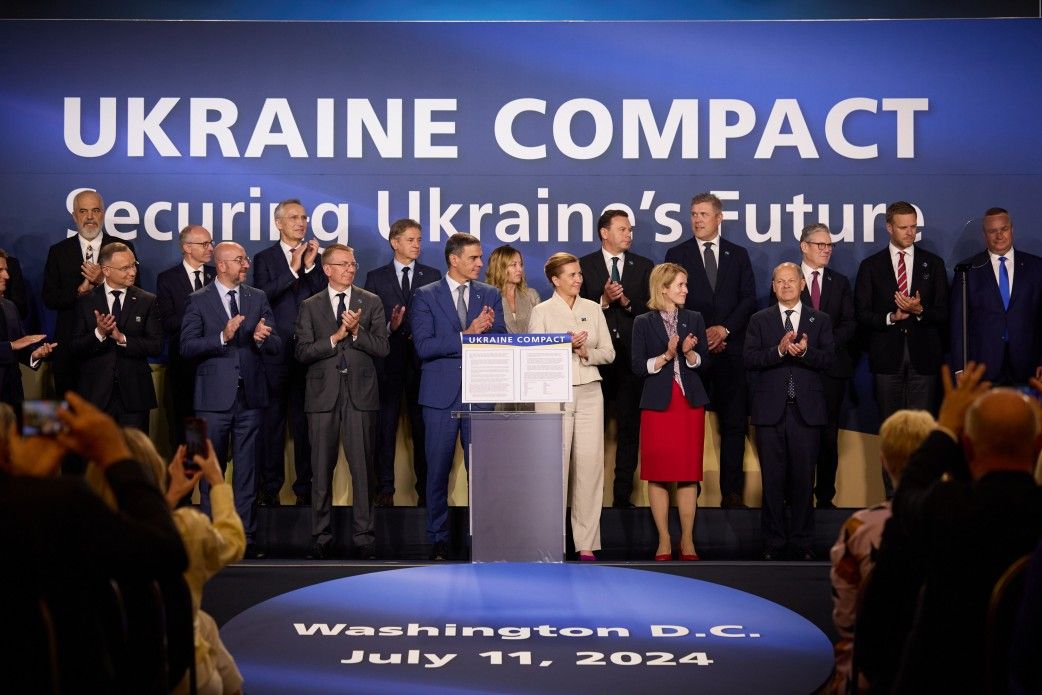The three-day NATO summit in Washington, D.C., concluded on July 11 with the launch of the Ukraine Compact, a security framework signed by 32 allies.
Russia's full-scale war against Ukraine was a key focus of the Alliance's 75th-anniversary summit. Multiple countries announcing aid packages and security agreements, though Kyiv did not receive any definitive news about its future membership.
The newly announced Ukraine Compact builds upon the joint G7 declaration made at last year's NATO summit in Vilnius.
"(T)his historic Compact creates a unified and comprehensive security architecture to support Ukraine today and in the future, in war and in peace," a White House press briefing said.
The compact states that members will support Ukraine's defense needs through training, military aid, and economic assistance, while also accelerating Ukraine's efforts to strengthen its defense capacities.
Signatories also agree to "convene swiftly and collectively at the most senior levels to determine appropriate next steps" in the event that Russia launches a future armed attack against Ukraine.
"In the short term, we will continue to provide Ukraine with the weapons, ammunition, and training necessary to repel Russian forces," U.S. President Joe Biden said at the unveiling of the compact.
"In the medium term, we will help build the forces and capabilities to defend Ukraine and deter further aggression."
The Ukraine Compact announcement was somewhat overshadowed by Biden's flubbed introduction of President Volodymyr Zelensky, in which he referred to Zelensky as "President Putin."
Zelensky laughed off the gaffe and thanked Biden, calling the Ukraine Compact "a solid architecture of security guarantees."
"This Ukraine Compact we are forming takes our relations to a new level — a significant achievement for Ukraine and all of us," Zelensky said.














